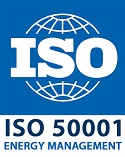Recognised certifications
Freiwilligen Kontrolle von Messe- und Ausstellungszahlen
The German certification bard has been operating since 1965 for the voluntary control of statistics relating to fairs and exhibitions in Germany. The aim of F.K.M. is to encourage the utmost transparency in the sector, with particular reference to the truthful and clear nature of the details concerning the individual events, which the associated exhibition organisers must communicate and make public in compliance with strict standards only after being certified by independent auditing companies. Veronafiere, F.K.M. certified since 1997, is the first non-German tourist department to have decided to submit its results for FKM analysis and certification. The results of every event are assessed in compliance with the FKM system, both with quantitative and qualitative indicators:
- quantitative data: square metres sold, number of visitors, extension of exhibition area, breakdown of said data among Italian and foreign
- qualitative data: geographic origin of the new countries present, innovations presented, number and nationality of the journalists present, quality of local transport, waiting times, staff courtesy, level of hospitality in local hotels and restaurants, overall functionality of the structure etc…, collected by interviewing foreign and Italian visitors.
Implementing the FKM system requires more severity in operation but supplies another positive element in the assessment of events, especially in relation to foreign markets and users. FKM certification confirms the absolute transparency, clarity and precision of the data referred to the event reference target.
Safety policy
The defence of health and safety in the workplace is a fundamental and essential principle of Veronafiere’s corporate organisation.
To this end, Veronafiere has implemented a Health and Safety in the Workplace Management System in compliance with the directives of BS OHSAS 18001:2007 the standard which defends employees ad interlocutors. Conformity to OHSAS 18001 (Occupational Health and Safety Assessment Specification) ensures fulfilment of the requirements envisaged for Health and Safety in the Workplace Management Systems and allows Veronafiere to optimise the management of risks and improve its performance.
The criteria are as follows:
- observance of the legislation in force in terms of employee health and safety;
- absolute priority to people’s health and safety;
- commitment to prevent accidents and sickness in the workplace, in compliance with the laws in force, with assignment of the necessary resources;
- involvement of staff, with ongoing training programmes, pursuing growth, awareness and the health and safety goals established;
- constant communication aimed at sensitising and involving all employees and interlocutors of the system to achieve the dissemination and sharing of the principle and culture of health and safety in the workplace;
- analysis of activities to identify the risks and implement protective measures with a view to reducing said risks;
- constant monitoring of technological and regulatory development to guarantee workplaces that are suited to the defence of employee health;
- system monitoring, guaranteeing audit programmes;
- identification of the measurable aims, in keeping with the general criteria of the policy, allowing the constant monitoring and improvement of work methods and processes, as well as service levels;
- regular examination of the Management System, in order to verify the adequacy and effectiveness of the system and the opportunities for improvement.
Veronafiere is the first trade fair organiser and owner of an exhibition centre to voluntarily apply for ISO 50001 certification, which was attained in October 2015.
The Trade Fair Organisation has developed an energy saving management system which, as well as complying with legal obligations, also meets the criteria of ISO 50001 (“Certifiable standards for energy management systems”).
Veronafiere’s policy has been drawn up in compliance with the modern standards applied to the running of systems and rational use of energy and resources which have an impact on the environment.
Thanks to the action taken, savings between 2007 and 2015 reached five million kWh, corresponding to one million kg of CO2 not released into the environment. The maximum annual consumption of electricity per square metre of gross exhibition space went from 128 to 77. 2 kWh. Savings on the consumption of gas between 2007 and 2015 reached 400,000 Sm3, taking the value per square metre from 6.7 to 2.9 Sm3.

